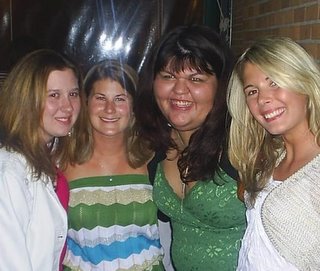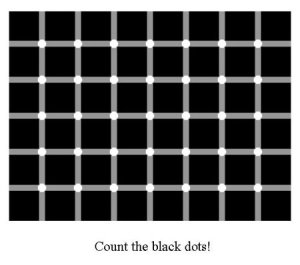Offbeat Escapades : 2005 A Year In Review
- In Denmark, a 43-year-old man was sentenced to two months in prison for passing himself off as a bona fide prisoner and thereby spending a night voluntarily behind bars. Per Thorbjoern Lonka said he carried out the prank in order to prove that rich people could easily pay someone else to serve their prison terms. The prison guards who locked him up failed to ask for his identity papers.
- A canny youth serving a sentence for assault in a Scottish jail escaped by virtue of the fact that his identical twin was also incarcerated there, but was due for release. When the brother's name was called, his twin presented himself, and was duly let out. The authorities then had little choice but to free the brother as well.
- A court in the Swiss city of Zurich ruled that owners of very short cars could pay only half a parking fine, provided that two of them could really fit into one space. A couple who owned two tiny city runabouts had done just that, but needless to say the parking attendant had stuck a fine on both their vehicles.
- Tired of hearing reports of visitors paying grossly inflated prices for taxi rides in his city, the mayor of Prague disguised himself as an Italian visitor -- and promptly unmasked a driver whose meter ran at over six times the normal rate. "Disguised the way I was, I was certainly expecting to be charged a higher price, but not to such an outrageous extent," he said.
- Local lawmakers in the US state of Virginia threw out a bill that would have banned young people from wearing baggy falling-down trousers, which are currently all the rage. "Underwear is called underwear for a reason" said the congressman who sought the measure.
- Forty-six students in Thailand were banned from the military for life after they tried to cheat their way through the army entrance exam via mobile phones concealed in their shoes.
- A woman in the US city of Norwalk, Connecticut filed a lawsuit against the local authorities for exposing her to colleagues' perfumes and colognes in her job as a municipal clerk. She cited a serious allergy.
- A couple in California pleaded guilty to trying to extort money from a major hamburger restaurant chain after claiming to have found a human fingertip in a bowl of chili. The court found that the fingertip was placed there on purpose, and had been purchased for 100 dollars from a construction worker who lost it in an industrial accident.
- The local council in the northern English resort town of Blackpool enacted an employment rights charter for the donkeys that carry tourists along the beach. The animals won regulated working hours and a day off each week.
- A German woman who was mistakenly recorded as being dead by her local pensions office was asked to provide documentary proof that she was, in fact, alive.
- When World Trade Organisation negotiators rolled into Hong Kong for a major summit, digital piracy figured prominently on their busy agenda. Strange to relate, many of the bustling outlets that usually sell music CDs, DVDs and software in the city decided to shut down for the duration of the talks.
- In a inversion of the familiar Third World call centre set-up, a British man was fined for advertising his "sex chat" phone line as offering "Filipina girls," when the women in question were in fact working from central England. He was unmasked when clients found the alleged "Filipinas" had strangely familiar accents.
- A Swiss woman sees colours and experiences tastes when she hears music, scientists at the University of Zurich in Switzerland reported. The rare phenomenon, known as synaesthesia, was confirmed in a 27-year-old professional musician, who saw violet on hearing an F sharp and red on a middle C.
- Researchers at National University in La Jolla, California, threw a dinner party and then analysed the leftovers to see if their guests left significant DNA samples on them. Complete profiles were recovered from 43 percent of the sample, and partial ones from 33 percent. Such work could be useful in catching burglars, who often like tucking into the food found in their victims' kitchens.
- African elephants have at least one thing in common with parrots: they imitate sounds they hear around them, said scientists in the United States and Norway. A captive female jumbo in Kenya was found to imitate the noise of trucks on a nearby road, while a male kept with Asian elephants at a zoo in Switzerland mimicked their chirping noises.
- Enterprising students at Brown University in the United States invented an alarm clock that monitors its user's brainwaves and works out the best time to wake him or her up. The only drawback: the sleeper must wear a headband equipped with electrodes.
- Alexis Lemaire, a 24-year-old student in Reims, France, claimed a world record for working out the 13th root of a 200-digit number by mental arithmetic. The feat, checked by a notary, took him 48 minutes and 51 seconds.
- Also in the maths department, Akira Haraguchi, a 59-year-old psychiatric counselor in Japan, recited from memory the value of "pi," a constant which consists of an infinite string of digits, to 83,431 decimal places. It took him 13 hours to beat the previous record, also set by a Japanese, of a mere 54,000 digits.
- The guardians of animal nomenclature had mixed feelings over a proposal to name three newly-discovered species of slime-mould beetle after US President George W. Bush, Vice President Dick Cheney and Defense Secretary Donald Rumsfeld. A pair of insect experts reserved the names Agathidium bushi, Agathidium cheneyi and Agathidium rumsfeldi for their latest creepy-crawlies.
- An odd-looking rodent spotted on sale for meat in a Laotian food market turned out to be not only a new species but also the first member of a new family of mammals to be identified in more than three decades. An alert member of the New York-based Wildlife Conservation Society noticed the creature, which was baptised a stone-dwelling puzzle-mouse -- or, more simply, "rock rat".
- Cane toads, reptiles imported into Australia in the erroneous belief that they would eliminate pests from sugar-cane fields, are attracted by disco-style flashing lights, said researchers in the Northern Territory who are desperate to find a way of eliminating the fast-spreading creatures. "The old toads are definitely a disco animal," said a member of a group called Frogwatch.
- The fashion for television detective series which focus on forensic science may be unwittingly providing tips to real-world criminals, a study by British researchers said. Some forensic scientists were even becoming unwilling to cooperate with the media for precisely that reason.
- Proof that scientists have a sense of humor: the annual Ig Nobel awards, which give spoof prizes to the most offbeat research. This year's crop went to the inventor of an alarm that rings then runs away and hides, thus ensuring that the sleeper has to get up to turn it off... to scientists who researched whether humans swim faster in syrup rather than in water... to British boffins who analysed the electrical activity of a locust's brain cell while the insect watched a "Star Wars" movie... and to a German team that calculated the pressure produced in penguins' anuses when the birds expel their poop..














































